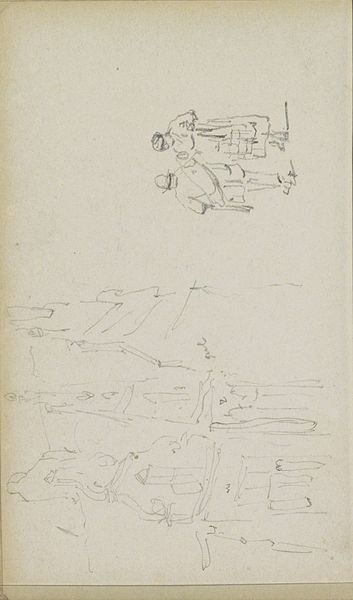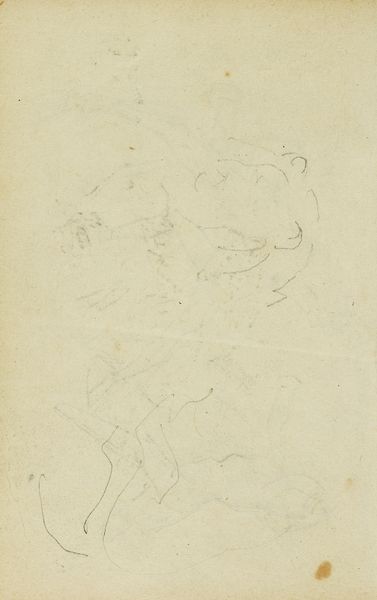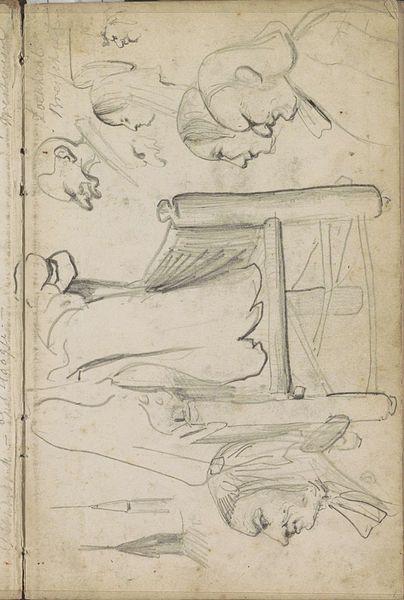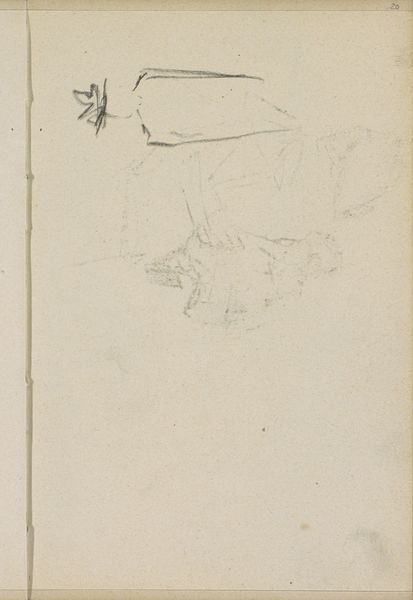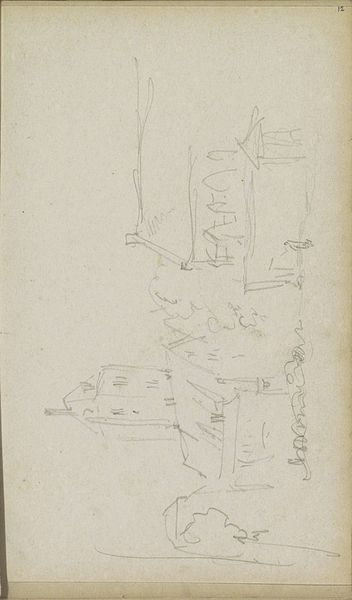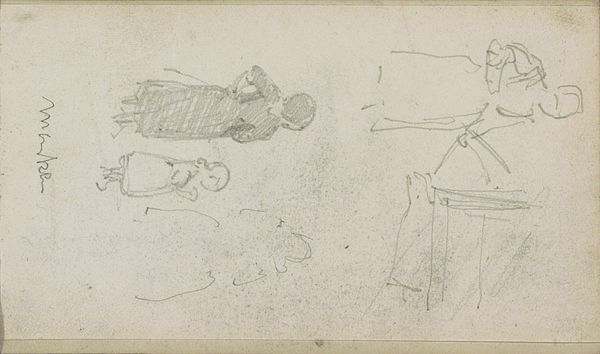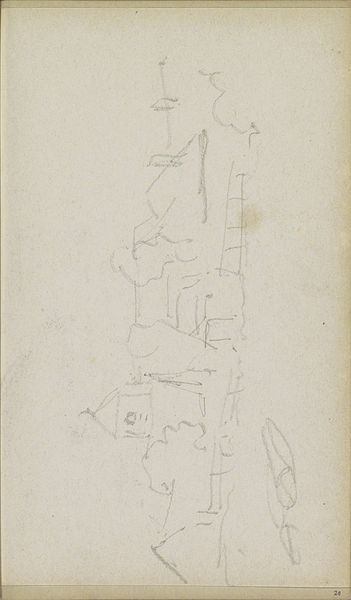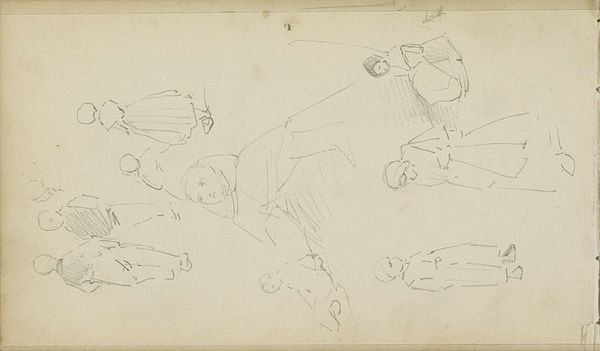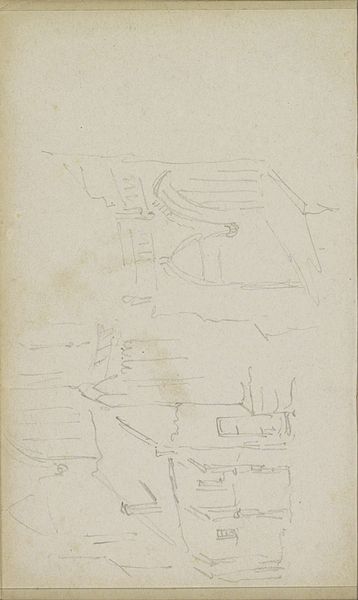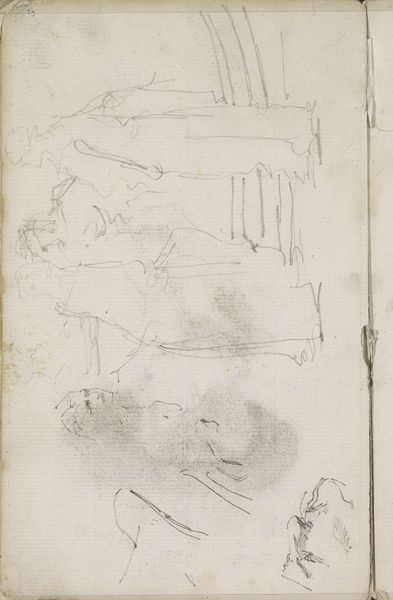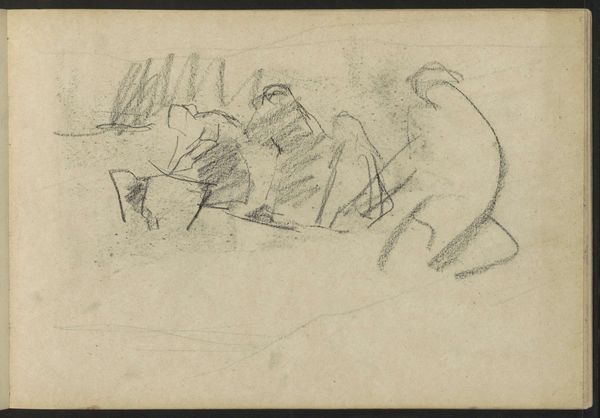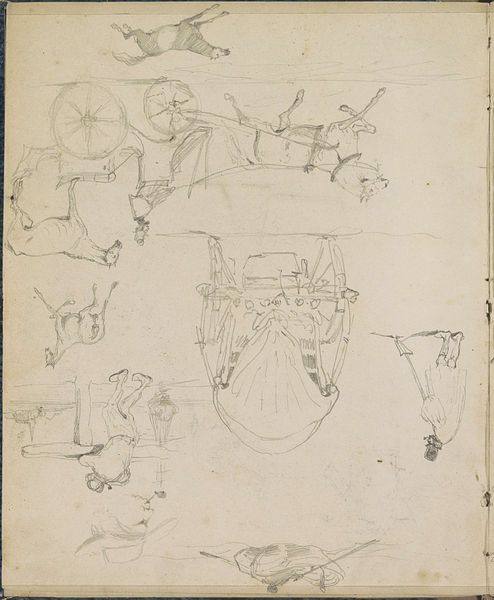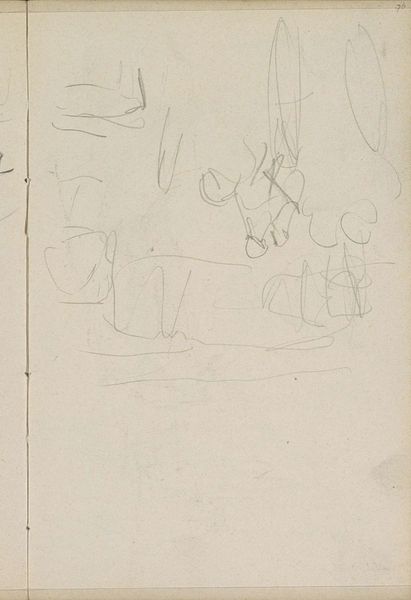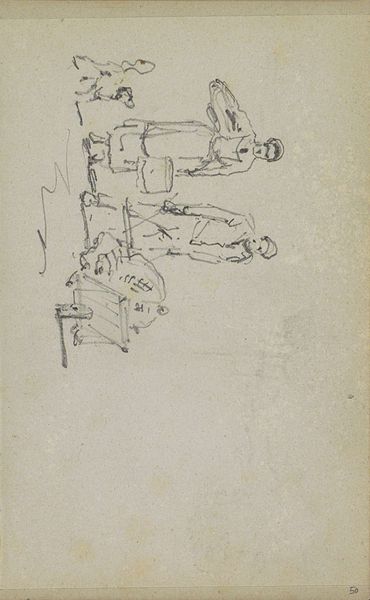
drawing, paper, pencil
#
drawing
#
amateur sketch
#
aged paper
#
toned paper
#
light pencil work
#
pencil sketch
#
sketch book
#
incomplete sketchy
#
figuration
#
paper
#
personal sketchbook
#
sketch
#
pencil
#
sketchbook drawing
#
sketchbook art
Copyright: Rijks Museum: Open Domain
Curator: This delicate sketch, titled "Wagen en figuren," presents a glimpse into the artistic process of Adrianus Eversen, likely dating from sometime between 1828 and 1897. Drawn with pencil on paper, the piece reveals his observational style. Editor: There's an ethereal quality to it, isn't there? A ghostly impression, like catching a fleeting memory on aged paper. Curator: Exactly. You see the material condition of the paper itself – it’s toned with age. It evokes an era. Notice the economical use of pencil; each stroke captures a rudimentary form. The light pencil work feels quick, capturing ephemeral impressions rather than precise details. Consider Eversen's probable social context here; what did sketching afford an artist during his time? Was this just personal exploration or for some commissioned work? Editor: I see layered figures; are they clustered around some sort of wheeled conveyance? There's a certain symbolism there, perhaps alluding to journeys or community or commerce. This resonates with traditional portrayals of transit. There's an everyday feeling of it: these are impressions of working class members getting through daily activity. Curator: Agreed. One must also look into Eversen's relationship with materials. His access to the materials reveals aspects about who this piece was made for. The light quality and loose technique raise some fascinating questions: was paper in the sketchbook, or something readily to hand to catch daily moments that caught the artist's eye. Was sketching tied to ideas of social and economical progress, and how does his choice reflect a certain audience? Editor: It brings up compelling questions of intent. The absence of refinement suggests either preliminary work or personal reflection. And regardless, there is meaning within the sketches, for example the way the characters relate on the paper and seem clustered towards a shared horizon evokes something poignant. Curator: Considering this artwork and his relationship with the sketchbook's pages brings the social dynamics into relief. How these sheets, mass-produced objects, were being circulated and consumed matters, as does what they capture. Editor: Indeed. The symbols – though faintly drawn – do hint at larger narratives of culture, transit and movement, leaving much to imagine beyond the immediate visible subjects and offering up potent themes. Curator: Exactly. It leaves us pondering the circumstances that shaped not just the content, but also the mode of its creation. Editor: The ethereal, aged effect gives insight into our enduring fascination with themes of progress, both individual and social. Thank you, Eversen, for this fascinating window.
Comments
No comments
Be the first to comment and join the conversation on the ultimate creative platform.
